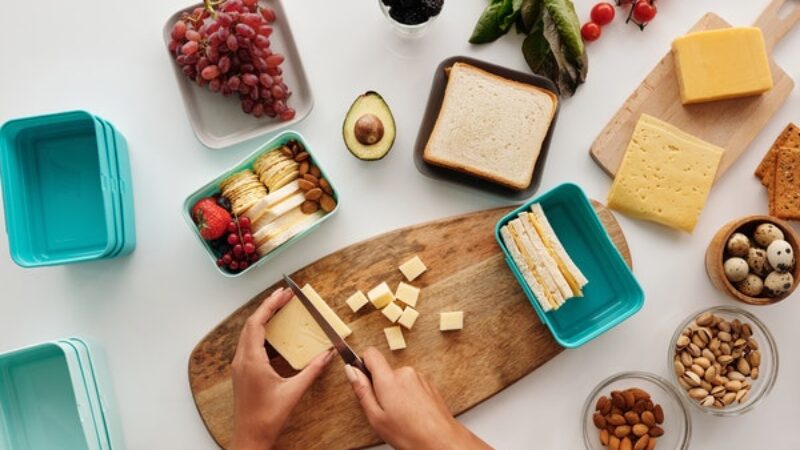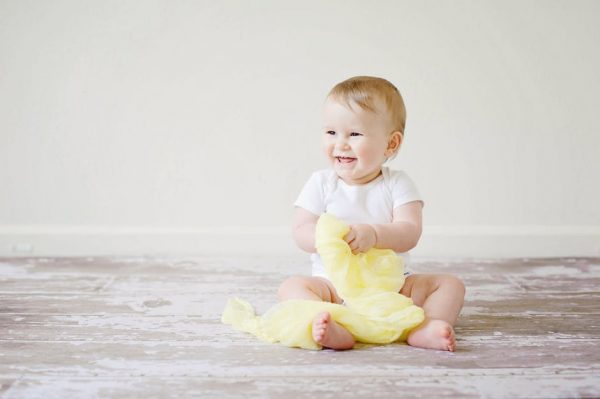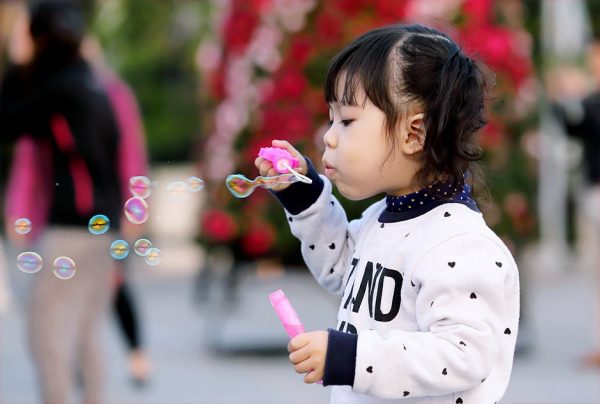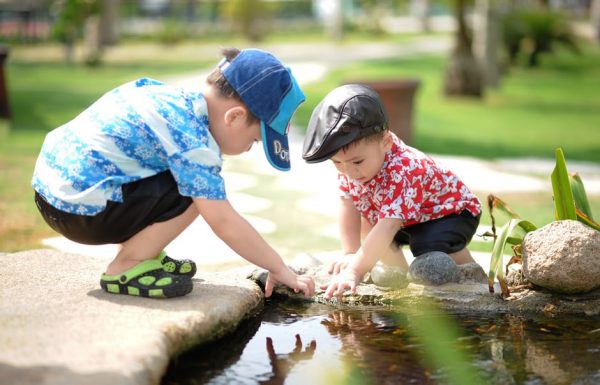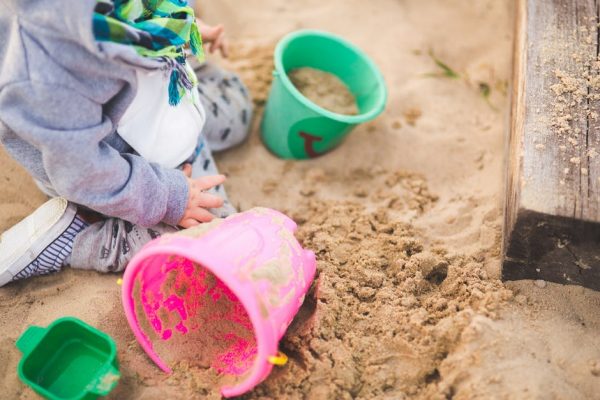
Parent Information and Blogs
Parents say…
Many parents are put off by messy play, as although the idea of finger painting or crafts sounds fun at first, the reality of paint, glue and glitter getting everywhere and the inevitable operation clean up that follows it soon sets in. However, many studies have shown that messy play is one of the best ways for our children to learn and develop, so now is the time to embrace it and get messy!
Here at Schoolhouse Daycare, we encourage our children to engage in messy and sensory play as much as possible as the many benefits are worth it. Plus, we clean up all the mess! To help you get involved in messy play activities with your children, we’ve outlined the main benefits that it provides.
It Fosters Curiosity, Imagination and Exploration
There is no right way to carry out messy play, it is all about letting children explore and experiment with different objects and raw materials without any end goals to restrict them. For example, although toys can be fun, such as a toy car, children are restricted in the ways that they can use them. With raw materials such as sand, water, chalk, paint, play dough or paste, children’s imaginations can run wild and they can spend a long time exploring these, making their own discoveries, stimulating their curiosity and developing their knowledge.
With messy play, the sensory experience also helps children to understand their senses. By exploring how things feel, smell and taste, this type of play nurtures an awareness and understanding of the world that surrounds them.
It Encourages Communication and Language Development
Messy play is a sociable activity, whether with family or other children, so naturally, it will enrich relationships through social interaction. As young children can’t explain things verbally, it allows them to share their discoveries in different ways through the use of objects and gestures and in order to do this, they need to think through their actions so they can communicate this explanation which also helps develop their cognition.
Depending on what you make the messy play activity, you can also use it to develop language skills and encourage speech. For example, using letters in the activity helps develop an understanding of the written language, by describing sensations and textures to your children you can help them build their vocabulary, and by talking through what you’re doing and asking open-ended questions such as “I wonder what happens when I do this?” you are providing speaking and listening opportunities and encouraging thinking skills.
It Practices Good Concentration and Nurtures Future Skills
High concentration levels are needed while engaging in messy play, from exploring objects and engaging all of their senses to thinking through their discoveries and trying to communicate them. This helps children to develop essential learning skills which then enables them to focus and concentrate when learning and practicing practical skills. Next time when you see your child making marks in the sand, they could be developing an early form of writing! Or perhaps when you see them swap an object with another child, they are learning to share and negotiate with others.
It Promotes Physical Development
Hands-on play also offers many physical benefits, allowing your children to develop an awareness of their body and personal space whilst strengthening their muscle control. Activities such as pouring, shovelling or drawing in the sand help build strength in the large muscle groups at the top of the arms and it is these muscles that then enable the smaller muscles in the hands and fingers to make precise and controlled movements. In messy play, children can play with tools to develop and practice their fine motor skills as well as their hand-eye coordination, until soon they can hold a pen or eat with a fork!
It Supports the Ability to Play Independently
In today’s younger generation especially, children are losing the ability to be able to amuse themselves. With messy play, we can teach them that you can make your own entertainment! In an unrestricted play environment where there is no right or wrong way to do things, this is the perfect situation to allow your child to play how they want to. By using their own mind to plan, explore and problem-solve, they are building a self-confidence and self-esteem that will develop them as independent people.
Ideas for Messy Play Activities to Do with Your Child
Get involved and get messy with our messy play ideas!
Get outside: the natural world is a playground of textures, smells and sensations, so go find some puddles or autumn leaves to jump in too!
Make the most of mealtimes: with younger children especially, allow them to experience eating in its entirety. Allow them to feel, smell and taste their food to engage all of their senses, then when they are slightly older you can teach them about table manners!
Play in the bath: water is one of the best natural materials to play with so why not add some sponges or empty plastic bottles and give your children an opportunity to play and explore.
Invest in a sandpit: sand triggers many sensations so let your child dig, pour and make sandcastles until their hearts are content.
Get creative with the mess: messy play is about the way things feel so go crazy with ideas. Whether you’re using everyday objects like paint and washing up liquid or investing in materials such as play dough and slime, you’re children just need to be given the opportunity to play with it and explore it.
Explore your food cupboards: food provides a great source of exploration and sensory stimulation so hunt for anything you can crunch, mash or manipulate. Dry foods such as cereal and pasta or interesting foods such as mashed potato, baked beans or jelly are perfect!
With messy play, preparation is key to minimising the cleanup. As long as you cover surfaces, allow plenty of time to play and clean your little rascals up before the activity remains, you will have a great time together and reap all the benefits!
So, what are you waiting for? Enjoy getting messy!
At Schoolhouse Daycare, we enjoy learning, encouraging confidence and we love life! If you think your child would enjoy life at Schoolhouse, then please do not hesitate to arrange a visit.
Looking for more great articles? See more from us here:
Surprising Reasons Why Outdoor Play is Healthy in Winter
Parent Information and Blogs
Parents say…
We are very honoured to announce that Schoolhouse Daycare Ltd have been awarded the title of Top 10 Recommended Mid-size Nursery Groups 2017 in the UK. This award means a lot to us here as this is based on reviews that have been submitted by our parents.
In addition to this very prestigious title, we have also been awarded the title of Top 10 Recommended Nurseries Wales 2017 for both our DVLA and Little Schoolhouse Daycare nurseries too.
We would like to thank our parents who have taken the time to review all of our nurseries and also to the staff who work hard day in and day out to make Schoolhouse Daycare the success it is.
To read more about these Top 10 Nursery Awards, please visit the daynurseries.co.uk website
Parent Information and Blogs
Parents say…
Little Schoolhouse Day Nursery – Tycroes, Ammanford
A warm welcome awaits you at our Little Schoolhouse Day Nursery. Please call Susan on tel: 01269 596 255 or email: little@schoolhouse-daycare.co.uk for more information.
Situated within the small village of Tycroes, Ammanford we have specially designed and dedicated rooms to stimulate, develop and inspire your children. As the name suggests, we are a small nursery providing care for only 18 children per day which means we really are a ‘home from home’ environment. Our outdoor area is spacious offering all ages the chance to explore, plant, build and play.
- Childcare available Monday to Friday 7.30am to 6.00pm
- All food freshly prepared on site with a menu designed to include the recommended ‘five a day’.
- School run service available to local schools
- Fully bilingual staff
Parent Information and Blogs
Parents say…
Why do siblings fight?
Children fight for many reasons; control over personal space and belongings, lack of social experience, need for attention, trying out new roles, boredom, and just for fun! Where there is more than one child in a family, and any two of the children are closer in age than 6 years, there’s bound to be conflict of some degree between them. Sibling fighting, like marital arguments, is simply inevitable and just as normal. Young children battle it out by pushing and hitting. Older kids shout. The bickering can often make you feel like bad parents—particularly when it happens in public. You are not bad parents of course, but if you can begin to see these situations as learning opportunities for your children instead of punishable moments, you will feel less stressed and you may even be able to avoid some of the squabbles.
Even though fighting jangles your nerves, realise there are hidden benefits. Your children have the opportunity with every scuffle to learn to solve conflicts on their own and resolve their differences. But understand, you can’t ignore every battle. Sometimes they really do need your help.
When a fight ensues, you have three options:
- Step in and end the squabble. Take this approach when one child is unmercifully teasing, bullying, or hurting the other. Separate the fighters and say, “I love you both. I won’t allow you to hurt each other.”
- Teach them skills for managing the conflict. Suggest strategies for trading or taking turns, such as using a timer to determine when time is up for each turn-taker.
- Allow them to resolve the conflict themselves. Even if the older one is clearly taking advantage of, but not hurting the younger, stay out of it. How else will the younger child learn to stand up for himself?
Children’s conflict is natural, as siblings fall out with each other and compete for their parent’s attention. With Schoolhouse Daycare Limited’s top tips you can equip your children with the skills and attitudes needed for a fulfilling relationship. This is not always easy to do, but here are some suggestions:
Teach Supportive Communication
Help children work out their differences by listening to them and identifying their feelings. When a fight starts, children might feel many emotions, such as anger, frustration, loneliness, sadness, jealousy, or disappointment. Begin by acknowledging your children’s feelings toward each other, e.g. “You both sound really angry at each other.” Listen to each child’s side without making judgments of who is right or wrong. Recognise the difficulty of the situation and express faith in their ability to work things out.
Focus On Each Child’s Talents
Each child is a special and unique person. Children also need to know that the contributions they make to the family are valued. By focusing on the positive talents each child possesses, parents can build the child’s confidence which can lead to stronger family relationships.
Avoid Comparing Children
Children who are compared will often feel resentful and angry both toward their sibling and you.Tell your child directly what you want or expect of them without comparing her to her brother/ sister.
Use Positive Reinforcement
Parents are role models for their children. If you want your children to be loving toward one another, then we must praise that behaviour when it happens, e.g. “You guys worked as a team, you picked up all the toys before the timer finished.” When we praise positive interactions, the likelihood of the behaviour reoccurring is greater.
How you deal with sibling squabbles determines how the children treat each other. If you punish them, they will punish each other. If your approach is to work on solving the problem in a mutually respectful way, they will also take the same approach.And celebrate your children’s fights! What a great opportunity to teach relationship skills and conflict resolution skills that they are bound to need later in life.
Rachel Burley, Nursery Advisor
Parent Information and Blogs
Parents say…
Bringing manners to you…..
Good manners and social skills are not just for special occasions. They are a way of life! From first impressions to table manners and beyond, this article will help you to make the basics of politeness simple and enjoyable for you and your child!
Developing social skills truly does start at home. Young children will use manners with family and friends, at nursery or school, restaurants, parties and whilst out and about. The three principles of good manners; consideration, honesty and respect – are timeless. It is important that you lead by example. Children don’t come into the world knowing to be kind and thoughtful, you have to teach them what is kind and what is rude. If you expect children to use their manners, be certain you are using yours too!
Like most good parenting techniques, teaching manners requires repetition and reinforcement. So start young and teach them healthy behaviours with these tips from Schoolhouse Daycare Ltd:
Introduce magical words everyday: Saying “Hello” “Please” “Thank you” “May I?” “Excuse me” “Pardon me” “I’m sorry” “No Thank you” “You’re welcome” “Goodbye” are the most important words to be used and will go a long way in aiding your child towards success now and as an adult. These words can be used around baby from day one, a gentle prompt to at least say ‘taa’ when they are handed their bottle or toy will help mould them into the individuals they will become.
Practice appropriate mealtime manners: You can introduce a basic level of table manners from a young age- for example, you can teach your child not to get down from the table with their mouth full. When a little older you can start fine-tuning table manners such as children should be encouraged to come to the table with clean hands and faces, only to start eating when everyone else does, eating with their mouth closed and thanking the person who prepared their meal. Mealtimes are a shared, social occasion and the ideal time to start to teach your children manners. Even young children should be expected to say “Please” and “Thank you”.
Join in with life skills such as learning to help around the house: Tidying toys away, making their bed, laying the table, putting their clothes in the wash basket can help children to respect their belongings as well as yours. Young children can learn how to do simple daily self-help activities- they just need to be taught what to do. Simply making tasks fun and getting children to join in lays down a good foundation for later life. All children like to feel independent, but sometimes they need your encouragement to feel that they are capable and that adults believe that they ‘can do it’. Make these tasks into a game, ‘Who can tidy up the fastest’, ‘who can find the yellow bricks’. Involve your child and offer praise when they help.
Show consideration and be kind to brothers and sisters: Sure it doesn’t always work. Children do fight and argue and don’t always have respect for one another. But on the whole true sibling relationships have a varied lot of ingredients and it is key that as parents you promote how to be civil to one another. Children can learn to sort things out for themselves, but encourage them to think about the way in which they talk to you, each other and their friends. Then think about the way in which you speak to others. Is it with the same consideration and tone?
Learn to share and take turns: No one likes to lose or be last- especially not very young children. Children need clear lessons in sharing and taking turns. Simple games where two or more can play help to teach them give and take. But don’t just leave them to it. Sit down with them, show them how the game works. Tell them what the rules are. Share with your children so they know the importance of sharing with others. Compliment them when you see them sharing with others.
Discover diversity: Explain why people dress and speak differently, why our friends come in all sizes, shapes and colour. It is important to teach children not to comment on other people’s physical characteristics, unless of course it is to compliment them, which is always welcome.
Use manners when out and about: It is important that if your child has spent time at their friend’s house, or been to a party, they are encouraged to say “Thank you” to the child’s parents for having them and for the good time that they had. When out shopping or at a restaurant stay connected with younger children by keeping them physically close to you and maintain frequent verbal and eye contact. Help older children feel part of the action so that they are less likely to get bored.
Offer encouragement: Give children positive reinforcement. When they use their manners acknowledge it. “That was lovely manners, well done”.
Most importantly, be patient. Children won’t be full of graces and become amazingly well-mannered little people overnight. As with everything when it comes to children learning new things, learning basic manners takes time!
.
Parent Information and Blogs
Parents say…

